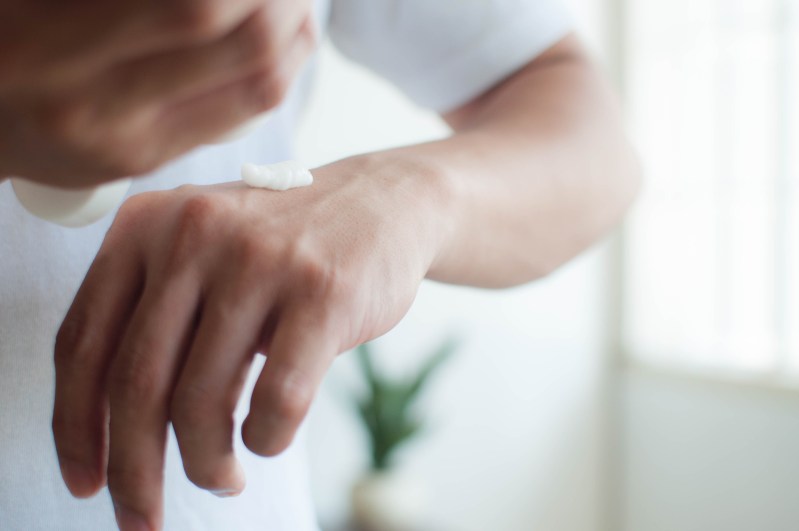
The gradual drop in temperature and humidity levels outdoors throughout the winter months can leave many of us susceptible to dry skin that lacks moisture. Whether you have dry skin or another skin condition such as acne, the types of skincare products you use play a vital role in the health and appearance of your skin. With so many different types of skincare products on the market, it can make it even more challenging to decide which brand or type is best suited for your skin type. Not to mention, many face and body soaps on the market are not soap and contain synthetic ingredients that can actually worsen many skin conditions.
Finding a high-quality, natural soap can help improve your skin’s appearance and the overall health of your skin, the body’s largest organ! That’s why many people are switching to goat milk soap – made entirely from natural goat’s milk. Below, we’ll break down everything you need to know about goat milk soap and how to decide if it’s a good choice for your skin.

What is goat milk soap?
Goat milk soap is made through the same process as traditional soap, a process known as saponification. This process involves combining fats and oils with a base known as lye. Lye is usually made by combining water and sodium hydroxide in most store-bought variations of soap. However, goat milk soap differs in that it replaces the water with real goat milk. In turn, the end product is more natural and has a creamier texture due to the naturally occurring fats found in goat milk.
The idea behind using goat milk to make soaps is based on its rich content of naturally occurring saturated and unsaturated fats. These natural fats help produce a rich lather when using soap but also help to add moisture back into the skin. The moisturizing properties of goat milk soap are why many have found it to be helpful for dry skin or other skin conditions that cause dryness, such as Psoriasis or acne.
Over the past few years, goat milk soap has continued to grow in popularity thanks to its many benefits for nourishing the skin (both face and body). The rise in popularity has prompted many new brands of goat milk soap to enter the market. However, one of the most popular brands – Beekman soap- has been on the market since 2009, offering high-quality and chemical-free goat milk soap products.

Forms of goat milk soap
Most goat milk soap is packaged and sold as a traditional bar soap. The naturally occurring alpha-hydroxy acids (AHA) help to serve as a natural exfoliant for the skin. One specific type of AHA found in goat milk soap known as lactic acid works to gently remove the top layer of dead skin cells, leaving the skin glowing and healthy.
While goat milk bar soap is most common, companies such as Beekman soap also offer hand and body wash options for those who prefer a liquid form of soap over a traditional bar of soap. Goat milk lotion is also great for adding hydration and moisture to dry skin.

Is goat milk soap good for your skin?
One of the primary reasons everyone can benefit from using goat milk soap is because it acts as a natural and gentle cleanser.
- Goat milk soap does not disrupt the fats in the skin’s barrier like harsh soaps do and can gently cleanse dirt off the skin.
- Goat milk soap is also good for your skin as it is rich in naturally occurring nutrients such as Vitamin A. Some studies even suggest that Vitamin A can have powerful anti-aging effects on your skin.
- In addition, goat milk also contains cholesterol and fatty acids which help make up your skin’s membrane.
Who is goat milk soap best for?
Using goat milk soap is good for those with various skin conditions and who experience dry skin. Due to the high fatty acid levels found in goat milk, using this type of soap may help to improve moisture and thereby improve the state of skin conditions such as Keratosis Pilaris (KP), Acne, Psoriasis, Eczema, and more. A dermatology study found that using goat milk soap is a safe alternative to harsh soaps for those suffering from acne.
Can I use goat milk soap every day?
Just like traditional soap, goat milk soap can safely be used every day. Goat milk can safely be used every day regardless of your skin type and is safe for those with skin conditions or sensitive skin.

Trying goat milk soap
If you suffer from dry skin or other skin conditions such as Keratosis Pilaris (KP), Psoriasis, or Acne, goat milk soap is certainly worth a try. Switching to goat milk soap can help you move away from using traditional soaps that contain chemicals and harsh ingredients. From hydrated skin to reduced acne and hyperpigmentation, the benefits of goat milk soap are certainly intriguing.



